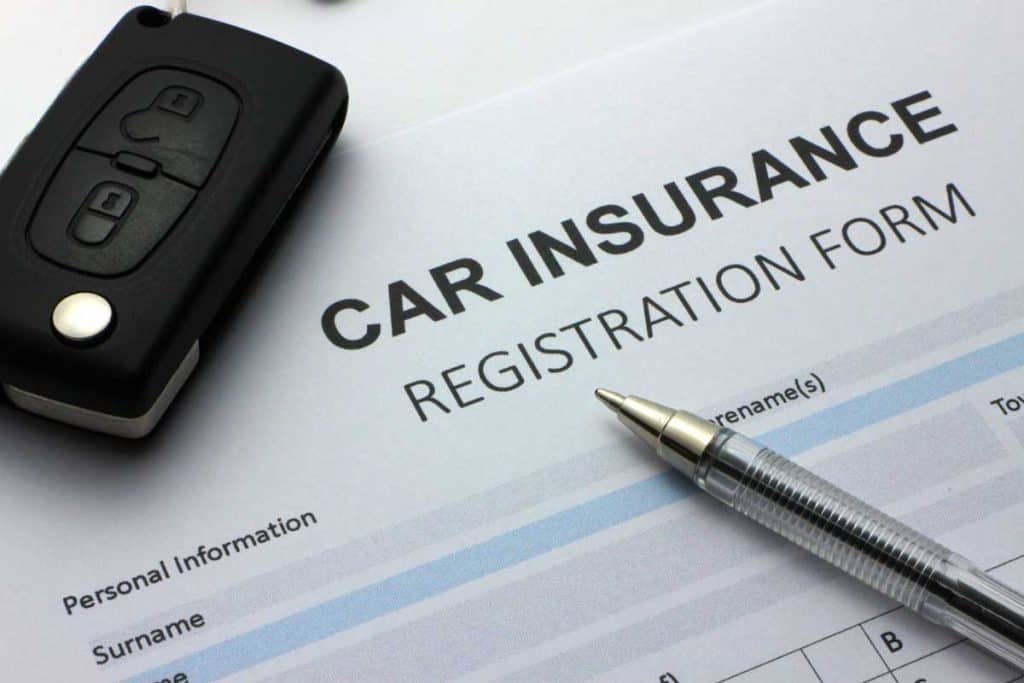 Purchasing a car can be an exhilarating experience. However, it can also be a complicated one. Depending on what way you went about purchasing it, there's a lot of steps you have to go through. Whether you got the car straight from a dealership or from a friend, prepare for quite a bit of paperwork.
Purchasing a car can be an exhilarating experience. However, it can also be a complicated one. Depending on what way you went about purchasing it, there's a lot of steps you have to go through. Whether you got the car straight from a dealership or from a friend, prepare for quite a bit of paperwork.
As soon as you get your new (or used) car, get it registered and insured in your name. You can't legally drive the vehicle without these completed. Additionally, we strongly recommend that you follow the maintenance schedule. This will save you money in the long run by avoiding some unexpected repairs.
Of course, there's much more to do than just putting your car in your name. Continue reading, and we'll explain all the other necessities.
The Steps to Take Right After Buying Your Car
Here we'll be elaborating on those next steps after acquiring your new car.
Get it Registered
Car registration is your legal proof that you paid the taxes and fees associated with your car. This is referred to as your license plate and sticker. The registration connects with your insurance and vehicle title as evidence that the vehicle is yours. Not registering your vehicle can lead to excessive fines or even jail time. You also could run the risk of your car getting impounded.
That registration will last you one or two years, depending on the state. When you renew it, you get a new registration sticker (if applicable in your state) to put on your windshield or license plate(s). How much you pay greatly depends on the state; some states are cheap, while some could cost you well over $100.
To get a registration, you'll need the following documents: your driver's license, proof of insurance, the car title, and a vehicle registration form. Some states may require proof of a passed inspection or smog test.
Get it Insured

It's the law to insure your car because of the liability risk you and other drivers pose. You'll need the minimum liability coverage for your state. Very few states let you drive without insurance, but you'll need to pay an uninsured motorist fee to avoid a fine.
Buying a Car from a Dealership VS Buying Privately: What Different Steps to Take?
The steps we just suggested for before you buy a car can be applied regardless of who you buy the car from. However, there are a few different approaches you'll have to consider for each before that car can be called yours.
Buying from a Dealership

The benefits of getting a car from a dealership include the following:
- You're able to finance the car
- It's more likely to be in good shape for the sake of the company's reputation
- Depending on the state, if you're trading an old car in, you're only taxed on the difference between the trade-in value and the sale price
- More likely to get a warranty
The drawbacks are that you're likely to dish out more money for the car with possibly less info on its history. Usually, you don't have to pay it all upfront like you probably would with a private seller. But life happens, and you may have to miss a payment, which could do some damage to your credit score.
Should you choose from shopping from the dealer, make sure you read all the paperwork in full. Understand all the numbers and policies, so you don't sign up for unexpected expenses.
Buying from a Private Seller
The benefits of buying from a private seller are as follows:
- More likely to get a lower price
- The seller can give you a much better history of the car since they've personally driven it. They can tell you the ins and outs, and all the components to pay attention to
- Some states won't charge tax on the sale of the car, saving you lots of money
Your number one concern is the loyalty of the seller. For all you know, the seller could tell you what you want to hear so that you could buy it. Or worse, they could be secretly selling a stolen vehicle. Not all private sellers are that underhanded, however. Nonetheless, that's the importance of doing test runs; get a feel for it before buying to make sure you're making the right choice.
Time is another benefit; usually, there's no paperwork to sign other than the title to the car. Just pay the seller the money and handle the legal stuff shortly after. If the seller does not have the title to the vehicle, you should not purchase it, as it could be stolen or have still have a bank lien against it. Also, if there is no title, then you won't be able to register it in your name or obtain insurance on it.
The Choice is Yours
No matter which avenue you pursue, please get a background check or test of the car. It's always important to know what you're getting before handing your hard-earned money to the seller. If you see that the vehicle is street legal and has an acceptable history, then you're all set to buy.
How Long After Buying a Car Do You Need to Register It?
The amount of time you have to register the car varies by state. Generally, you have from 20 to 30 days to register. To register, bring the car title to the DMV. This title needs to be signed by the seller. You also need to have proof of liability coverage as it's required for every state. According to CarFax, some states want proof of passed emissions or safety tests.
Make sure you also have the money to cover the fees, tax, and extra expenses. Those fees include a registration fee and the cost of new license plates. As mentioned before, depending on the state, sales tax applies, too. If something happened to the title, one of two things must happen: the seller needs to request a replacement, or you need to pay to re-title the car. That cost varies by state.
Bonded Title
In the case you have to pay to re-title, you might also have to pay a bond. A bonded title means there is a surety bond with the title. You'll likely pay around $100 for this. After three to five years, the title won't have the "bonded" label attached anymore.
The purpose of the bond is to "promise" the state that you own the vehicle. Someone can claim that bond and request payment for financial loss. If you rightfully own the car or can settle the dispute, you'll have nothing to worry about.
Can I Drive a New Car Without Registration?
When you buy a new car from a dealership, there's a chance you can skip the DMV process entirely. Some dealerships let you do all the steps to registering your vehicle right in the building. They may even have the new license plates ready to go, but that's not always the case. In those instances, you will be given a temporary license plate that is valid for 30 days. By the expiration date, you should receive your official plates in the mail.
In other cases, some states give you a window of a few days to drive without registering. For example, Michigan gives you 15 days to handle registration. However, that drive usually has to be from the place of sale to the place of storage, like your house. Most states will let you drive around for a few days, though, provided you have proof of recent purchase.
How Long Does Car Paperwork Take?
At a dealership, the paperwork can be a long, dreadful process. The average time to finalize a car purchase is roughly 3.5 hours. Why does it take so long? Because the dealer is trying to annoy you enough with the long wait to take the car at a higher price.
Sometimes it's also a lack of preparation by the buyer. To make the process go quicker, have these ready before going to make the purchase:
- Your payment (usually cash, card, or check from a pre-approved loan)
- Driver's license
- Title of trade-in vehicle (if applicable)
- Proof of insurance
You'll also want to make sure your credit is acceptable long before beginning the whole process. Thinking your score is good when it isn't can make the paperwork take even longer.
Can I Drive a Car Off the Lot Same Day?
In a nutshell, if you have insurance, you're good. Your policy will usually cover your newly purchased car for a certain length of time. Check your policy to see how long you're covered. Some policies give you four days, and some provide full coverage if you're driving home. Just be sure to let your insurance company know while you're at the dealership; in rare cases, your insurance company may need to fax proof of insurance to the dealer.
Without insurance before purchasing, you'll need to add insurance with your car purchase. The paperwork for it will be given to right before you hit the road. From there, your only concern would be to handle registration, which we covered earlier.
Congratulations on your new vehicle!
To wrap this up, make sure you get your insurance and registration as soon as possible. Many states and insurance policies give you some leeway to drive on the road without the necessary documents. Use that time to get everything you need in your name. Because getting pulled over without your necessary documents can mess up your driving record and risks you getting major fines.
